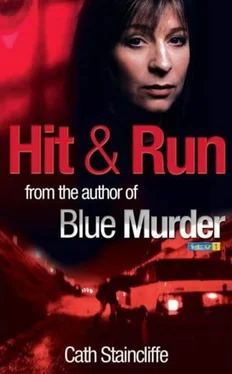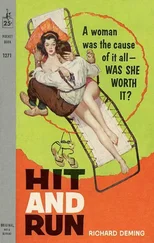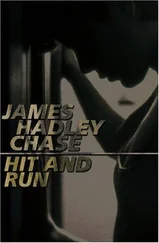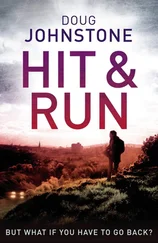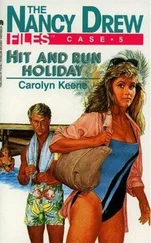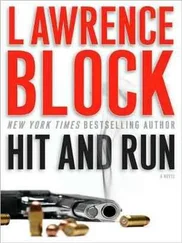He fetched a bottle of vodka from the fridge and poured himself a tumbler full. He rewound the tape, played it again, freezing the image so he could study the photograph. Smoking steadily (no need to smoke in the garden now) he regarded the narrow eyes, the slight sneer to the mouth, the broad chin and close cut hair that gave Stone the look of a hard man, a bruiser.
Chris drank and smoked, replaying and freezing the tape each time the VCR switched back to standby. He swallowed and sucked until his mouth felt sour and his eyes ached. When he stood to go upstairs he stumbled and knocked the bottle and glass to the floor; they both smashed. He left them there.
Upstairs he peed but didn’t bother to wash or clean his teeth. He went into Ann-Marie’s room. The dog, lying on the lower bunk, lifted his head, looking wary, expecting to be banished.
Chris kicked off his trainers and pulled off his top and jeans. He lay down beside the dog and tugged at the purple ‘groovy chick’ duvet cover until it covered him and shut out the flat, grey light from the afternoon outside.
Butchers stood in front of Janine, eyes averted, hands clasped.
‘Did you want to see Chris Chinley charged with murder? Does that make anything better? For them? For you?’ There was a pause, his face remained impassive.
‘You should have told me. You should never have been assigned to this case. Why didn’t you say anything?’ He didn’t answer her, just stood there rocking ever so slightly on his heels. ‘If people can’t trust us then we might as well all go home now. This is a disciplinary matter. If you hadn’t the wit to think about the damage you could do to Chris Chinley – or Jeremy Gleason for that matter – you could at least have thought of what it might do to you. Didn’t you consider what it might mean? Kicked out or demoted. After all the years you’ve put in. The work you’ve done. Good work.’
Butchers gripped his hands tighter; his face was set and gloomy. She saw any hope die in his eyes. She paused, deliberately letting him think the worst. Then she spoke quietly. ‘You don’t know how lucky you are. Chris Chinley is clear on the gun residue test, his clothes are fine.’
His shoulders fell, his clenched hands slackened, his eyes shot up to scan her face then away again.
‘I’ll have to note an error of judgement in your records. You’ll keep your stripes. Pull another stunt like this, ever,’ she stressed the word, ‘and you’ll be suspended.’
‘Thank you, boss. I know it was wrong, whatever my reasons. I just… thanks.’ He nodded to express his gratitude, his face suffused with pink.
Richard knocked at her door and opened it, took the situation in with a glance. Looked at her questioningly – bad time? She beckoned him in.
‘We’re getting calls about Stone,’ Richard said. ‘Several from round Warrington way. We’ve asked the local force to give it their special attention.’
‘In those spare moments they’ve got,’ Janine remarked wryly. It was no secret that forces were stretched to the limit and under-resourced. Many areas of police work got only perfunctory attention. The relentless demand of reaching targets tended to settle priorities.
‘Plus forensics on Gleason,’ he held the reports in his hand. She came to stand beside him so they could scan them together. Butchers waited, all ears.
‘Bloody hell,’ said Janine. ‘Here. Blue marking on his knees, it matches the traces found on Rosa Milicz.’ She read aloud, ‘Chemical analysis indicates industrial dye.’
‘Blue dye works,’ Butchers said in a rush, ‘Heaton Mersey! It’s closed down now. Kids used to play in the water there, come out blue. They pumped the effluent into the river, the mud; the banks were thick with it.’ His liking for trivia coming up trumps now.
Janine felt the skin on her arms tighten and her stomach muscles contract. Another break. ‘Canal?’ she asked him. It might not be the place.
‘River.’
Janine gestured to the map on the wall, glanced at Butchers. He moved over, pointed out the location to her. It looked good. ‘Get SOCOs to meet us there,’ she instructed him. ‘It could be where Rosa was murdered.’
Janine rang Connie on the way, knowing that it would be impossible to get home on time. Things were happening so fast, there was so much to do. The sheer amount of work gave her a panicky feeling in her stomach, like rodents skittering about. Stupid to think about it like that. Break it down, she admonished herself, manageable chunks, one bit at a time.
Connie insisted that if Janine was going to be any later than half-seven she ring and tell her.
‘Yes, and I’ll get Pete over,’ she replied.
‘You’ll let me know by ten past seven?’
‘Yes. Ten past.’ Janine rolled her eyes. ‘Synchronise watches,’ she muttered as an aside. ‘Bye.’ Janine turned to Richard at the wheel. ‘It’s like my mother’s moved in – except my mother was never this organised.’
‘Do the kids like her?’
‘Tom does, Eleanor reckons she’s bossy. Michael keeps out of her way. I think she frightens Pete – all that efficiency.’
‘How is Pete?’
‘OK.’
‘Round yours a lot?’
She frowned. What did it matter to him? Was he jealous or something? ‘It’s called parenting,’ she said sardonically.
‘Ah.’
She thought about calling him on it but was distracted as they passed Tom’s school. The crossing was festooned with mementoes for Ann-Marie: flowers in cellophane, soft toys, cards. It brought it home anew. The little girl dead, one of the men who knocked her down dead himself, the other on the run. Thankfully Chris Chinley was in the clear; she would make a point of letting him know personally. It wouldn’t change the fact that she’d had to interview him while he was still mourning his loss. He’d probably never forgive her for that. She’d have to live with it. Nothing compared to what the Chinleys had to live with – or without. She looked at Richard; he pulled his mouth down, gave a little sigh. He didn’t need to say anything.
The battered prefabricated building and derelict remains of stone walls were set close by the river. There was a loading area with a sheer drop into the water and it was along here that they could see the deep blue colour that had tainted both Rosa and Gleason. Originally it would have been a site for filling and unloading barges, the barrels of dye taken along the river to the canal network and then to places like Bolton and Bradford where it would be used to dye cotton and wool.
The river was a muddy brown; across the other side wire netting framed what looked like a storage depot. Orange and blue containers stacked up. A clutch of misshapen saplings sprouted at the base of the bank, bent by the force of the current. Shredded plastic bags fluttered from the branches. An urban installation.
Janine knelt beside Richard at the very edge of the stone platform. It was discoloured a rich indigo shade. Little flag markers surrounded them; scene of crime officers had already picked over this area, removing samples for testing.
‘He kneels here to shove her in,’ Richard was talking about Gleason. ‘He gets dye on his jeans.’
‘On Rosa the staining was on one side, her ankle, knee and hip. Abrasions.’ Janine imagined the scene. ‘If she was wrapped in bin liners and they’d torn on this edge that would account for it. The dye would get into the grazes, mark her skin.’
The wind was whipping over the water, rustling the stalks of weeds along the banks and toying with the litter here and there. Overhead, clouds with bruised edges were buffeted along. The temperature was dropping.
She looked around. ‘But no sign of a struggle, nothing that fits with the state of her face. It looks like she was brought here, not killed here.’
Читать дальше
